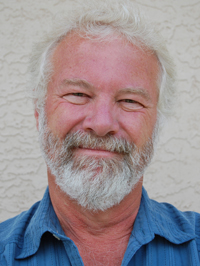
While it’s not yet carved in stone, it now appears that a federal election will be called this spring. All three opposition parties decided, for reasons of their own, to pull the pin on the Conservative government Tuesday as it introduced its 2011 budget.
“I can’t believe they are actually doing this,” said MP Jim Abbott after NDP Leader Jack Layton said he would not support the government. Layton had played out his string as long as he could before announcing that his party would not support the budget, even though it contained at least two items he had lobbied for.
The Bloc Quebecois’ Gilles Duceppe did not support the budget because it lacked a $2.2 billion payment to Quebec for harmonizing its provincial sales tax with the federal GST. And the Liberals under Michael Ignatieff? Canadians have known for weeks that they would thumb their noses at the Conservatives.
There will still be a few days of speeches, amendments and, finally, a vote. But that’s about all she wrote for this Conservative government.
It certainly doesn’t mean the Conservatives are out of power yet. They continue to lead in the polls and could well come back to form yet another minority government. Most Canadians do not appear to want an election and an Ipsos Reid survey conducted for Postmedia News March 11 and 15 suggests 28 per cent of Canadians believe the Conservatives are the party most likely to deliver honest, open and trustworthy government, with the New Democrats at 22 per cent and the Liberals at 15.
This could be an election that only politicians and their backroom strategists want. And they could be punished for it. Finance Minister Jim Flaherty’s budget was a moderate one — certainly not the what some would consider a truly conservative budget — that contained sensible spending measures. It also provided $730 million in relief for Canadians on some fronts — particularly poor seniors who stood to benefit from A Guaranteed Income Supplement top up and a tax credit for people caring for sick relatives at home. There were also all kinds of tax-credit goodies for people to the tune of almost $650 million over the next two years.
Why the Liberals and NDP would defeat a budget that contains measures like those is beyond me. What they should have done is wait for something they can really pin on the government when their public-opinion ratings are rising — not stagnating. But they didn’t do that. No. Ignatieff and Layton should probably gild the lily and shoot themselves in the other foot just for good measure.
As for Jim Abbott, Member of Parliament for Kootenay Columbia for the last 18 years, this is one election he won’t participate in. Abbott has some health issues and is, in fact, just tired. He said Tuesday that he’ll play the role of mentor and advisor to the Conservative Party’s new candidate in this riding — Sparwood Mayor David Wilks — but that’s the extent of it.
Wilks, who is also a former Mountie, has the advantage of being backed by a relatively wealthy, experienced and influential machine in this very conservative riding. His main opponent will be former Invermere mayor and Liberal-turned-New Democrat Mark Shmigelsky. The federal Liberals don’t even have a candidate here and given their poor showing in previous federal elections it’s little wonder that they can’t seem to find a new sacrificial lamb. The federal Green Party doesn’t have a candidate, either, but their candidates have fared so poorly they can scarcely be seen as a ballot-box threat.
The Conservatives are confident of their ability to take most communities in the riding but Revelstoke could be a tough nut to crack. They did win Revelstoke in the 2008 general election but that was the one and only time that they did.
This is not an election most Canadians want. Most think the Conservatives did a good job managing the economy during the recession and the budget was juicy enough that they may resent those parties who denied it to them.
Who’s going to win? At a guess I’ll predict victory will go to David Wilks.



